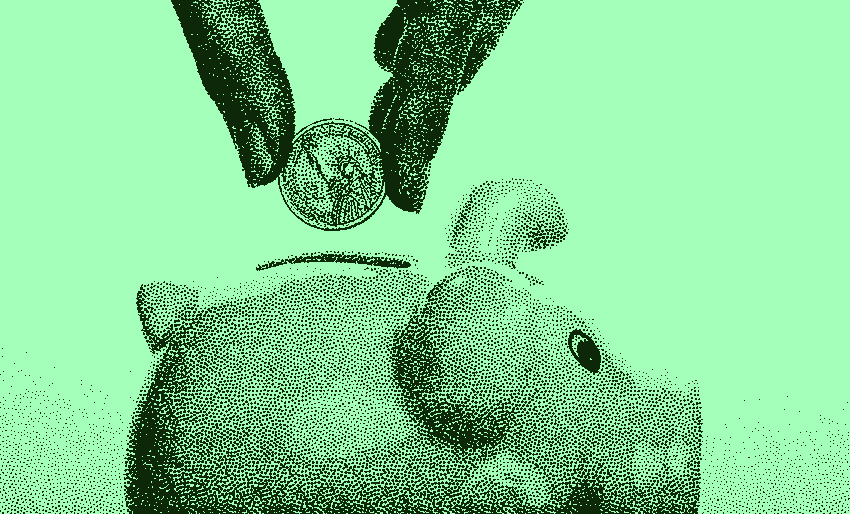Is Now A Good Time to Start Investing?
As the stock market took a nose diver earlier this year, new investors started opening investment accounts in droves, with the big online brokers seeing a massive spike in new accounts and trading activity. And it makes sense. After ten plus years of strong returns, for many people it felt like a good entry point to get into the market. So that begs the question, is now a good time to start investing? Here are a few things to consider.
It’s (almost) always a good time to start investing
The easy answer to “is now a good time” is YES. Because regardless of what the market has done recently, it’s almost always a good time to start investing.
Okay, this is a bit of a cop-out, but it’s true. Whether you’re just starting out or you’re more financially established, investing is a great way to passively build your wealth. And the sooner you get started, the longer your money will have to compound and grow.
There are a few things you’ll want to do first though, like make sure you have at least some money on hand for emergencies (although you don’t necessarily need a fully funded emergency fund). And you’ll want to be sure you’ve paid off any high interest debt, like credit card loans, because those negative balances will almost certainly grow faster than your investments. But in general, any time is a good time to start investing.
But isn’t it better to get in when the market is down?
Well, yes, in a way. After a stock market crash, stocks are less expensive. So you’re able to buy more shares for a given amount of dollars invested, which means more bang for your buck. And that’s generally a good thing.
But you don’t necessarily want to wait around for the next crash to start investing.
That’s because the market is unpredictable over the short term. And it also tends to be “efficient”, which means it knows more than you do, and it’s therefore virtually impossible to outsmart it. Even professional investors aren’t great at beating the market.
So trying to predict/time the ups and downs isn’t the best approach. A better plan is to invest for the long term, make regular contributions to your investments, and ride out the ups and downs along the way. The gains will come with time.
What’s the best way to start investing?
Getting started can feel a little daunting, but it doesn’t need to be overly difficult or complicated. If your employer offers a 401(k), that can be a good place to start. 401(k)s are tax-advantaged, which means your money will grow even faster, and some employers match a portion of your contributions. If you don’t have a 401(k), you can set up an IRA (Individual Retirement Account) on your own, which will also offer a tax advantage.
But keep in mind, both of these options (401(k) or IRA) are intended for retirement, so your money will be tied up until you hit retirement age. If you’ll be needing the money sooner, then you’d want to go with a taxable brokerage account or robo-advisor. With these, you won’t have the tax-advantage, but you can take your money out anytime. All of these options are fairly easy to set up.
If you want to learn more, we have an Investing Cheat Sheet to help you get started.
Don’t expect to get rich quick…sorry folks
We know, disappointing news, but hey, sometimes the truth hurts. While investing is a great way to build wealth over time, don’t jump in expecting to make a quick buck.
Sure, the market can/will have big rallies, and if you happen to time it right you’ll feel like a genius (it’s already rebounded a lot since it’s low point in March). But the market is fickle. It could fall again, or it might be a bumpy ride for a while.
Investing is really for the long term (ie years and decades). Historically, the market has doubled in value every seven to ten years (roughly), but it can take years to see these results. Some years, the market will do worse, and some years it will do better. Which means you may need to be invested for a while to reap the benefits. But those benefits will come.
Have a plan and stick with it
As much as we encourage getting started, you should still have at least some plan for your investments before you get started. It won’t be set in stone and you’ll need to periodically reevaluate it anyway. But you don’t want to be making key decisions in the heat of the moment – like when the market is crashing for example.
You’ll want to decide how to balance your stock investments with cash and bonds (aka your asset allocation). To some extent this will depend on your personal situation and how far away you are from needing the money. If you have more years to invest, you’ll want to own more stocks, generally speaking. Less years, less stocks. It can get a little tricky, but there are some simple ways to do it. Again, you can get started with our Investing Cheat Sheet if you want to learn more.
And don’t worry if you don’t have a huge nest egg to invest right away. The important thing is to get started and slowly build that momentum over time. Investing is for the long run, and it’s better to get on the right track early than to wait to get started. But if you hang in there and stick to your plan, it will pay off. So get to it!
Anything else we can help you with?
► How to start investing on a budget



